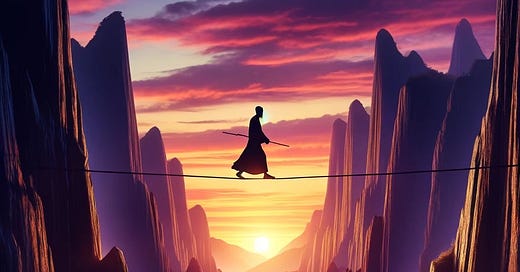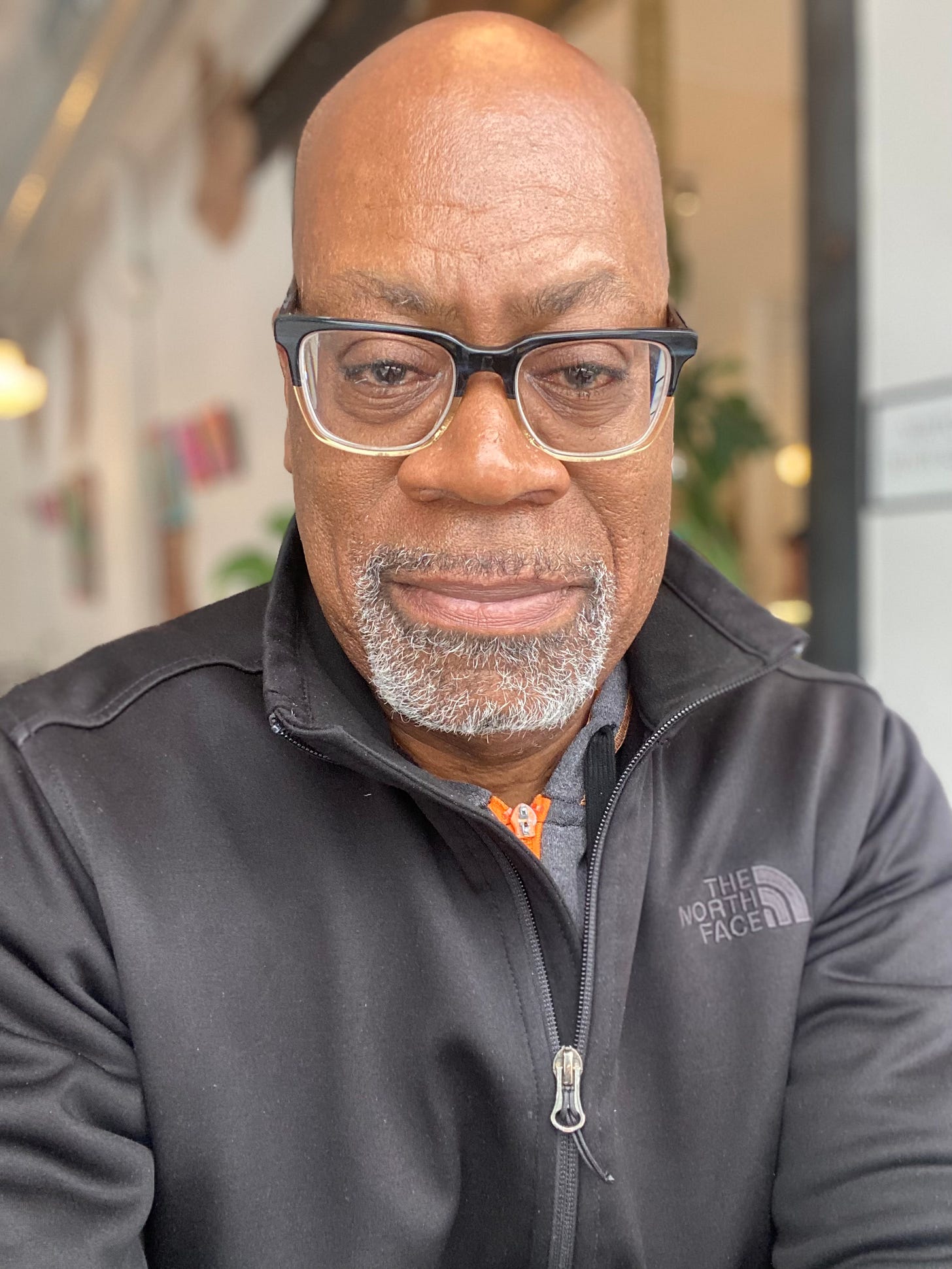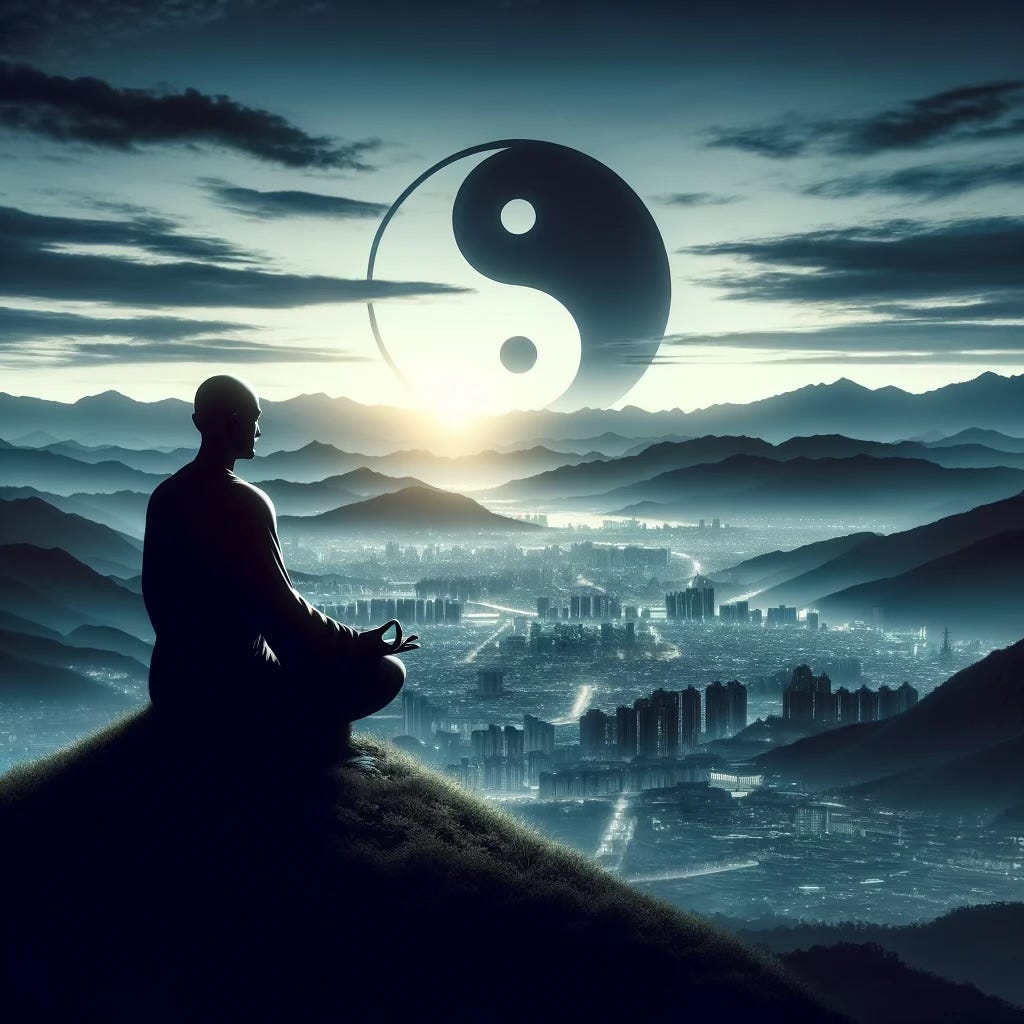In the fluid dance of Taoism, where paradox, mystery, and uncertainty pirouette around the essence of existence, I find myself a cautious dancer.
Sure my mind understands the essence of Taoist teachings, namely the beauty of letting go, the strength in vulnerability, the wisdom in not-knowing. Yet, my heart quivers at the brink of genuine discomfort, that deep, transformative kind which I instinctively avoid. It is here, in this contradiction, that my journey unfolds.
The Tao Te Ching whispers of a path that is natural, spontaneous, and unforced. This path, as I've learned, winds through terrains both comfortable and daunting.
My inclination is to bask in the warmth of the familiar, the predictable rhythms of my daily existence. Yet, I'm reminded of Laozi’s words, "New beginnings are often disguised as painful endings." To grow, to truly expand in the vastness of my being, I must embrace the discomfort that I so skillfully sidestep.
The avoidance of discomfort is a natural response, an evolutionary mechanism to keep us safe. But what are we protecting?
In the Taoist view, the Self is an illusion, a temporary aggregation of elements in the eternal flow of the Tao. Clinging to comfort, to a static sense of self, is akin to grasping at water – it's futile and contrary to the Tao’s ever-changing nature. This realization, while intellectually stimulating, is emotionally daunting.
To break free from my comfort zone while remaining immersed in the Tao, I've learned that small steps are pivotal. Taoism does not advocate for radical leaps into the unknown, but rather, for a gentle and consistent push against the boundaries of comfort.
It's about finding the edge of my fears and sitting with them, not charging through them. This could be as simple as engaging in a new activity, or as challenging as confronting deep-seated fears. Each act of courage, no matter how small, is a step towards expansive growth.
Another Taoist principle that aids in this journey is wu-wei, or non-action. This doesn't mean inaction but rather taking action that is in harmony with the natural flow of life. When I align my actions with the Tao, stepping out of my comfort zone feels less like a battle and more like a natural progression. It's about listening deeply to the currents of life and moving with them, not against them.
Moreover, embracing discomfort requires a compassionate acceptance of oneself. Taoism teaches us to be kind and forgiving towards ourselves. This journey is not about self-flagellation or harsh judgments. It’s about recognizing our limitations and gently pushing against them, understanding that growth is not linear and that setbacks are part of the process.
The Taoist concept of Yin and Yang also offers a profound insight into embracing discomfort. It shows us that opposites coexist and define each other. Comfort and discomfort are two sides of the same coin; one cannot exist without the other.
To appreciate and truly experience comfort, I must also be willing to engage with discomfort. It’s a dance of balance, where accepting the ebb and flow of these experiences is crucial.
So while I continue to grapple with the discomfort that is necessary for growth, Taoism offers a compassionate and wise framework to navigate this journey. It teaches me to take small steps, to align my actions with the natural flow of life, and to practice self-compassion.
It’s a reminder that discomfort and comfort are intrinsically linked, each giving meaning to the other. As I walk this path, the words of Laozi echo in my heart, "A journey of a thousand miles begins with a single step."
This step, taken amidst uncertainty and vulnerability, is where true growth lies. In embracing discomfort, I not only expand as an individual but also deepen my immersion in the Tao, flowing harmoniously with the endless dance of existence.
The Chocolate Taoist is a reader-supported publication. To receive weekly reflections and support the world of independent writing, please consider becoming a paid subscriber at $6.00/month or $60.00/year.







Love this, especially that idea of the self as a 'temporary aggregation of elements'. Taoism really speaks to me but I know so little about it. Aside from the Tao Te Ching, do you have recommendations for where to start?